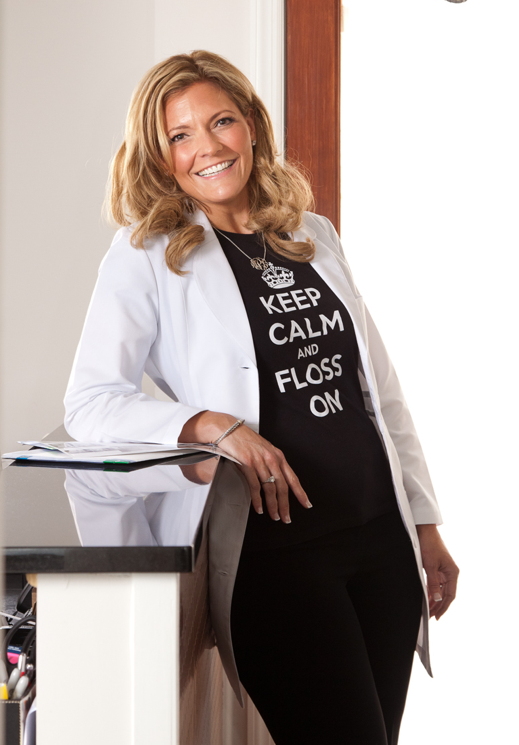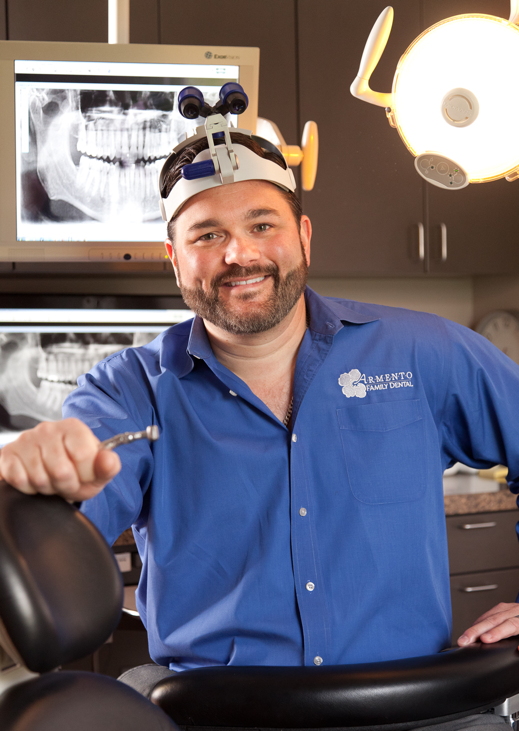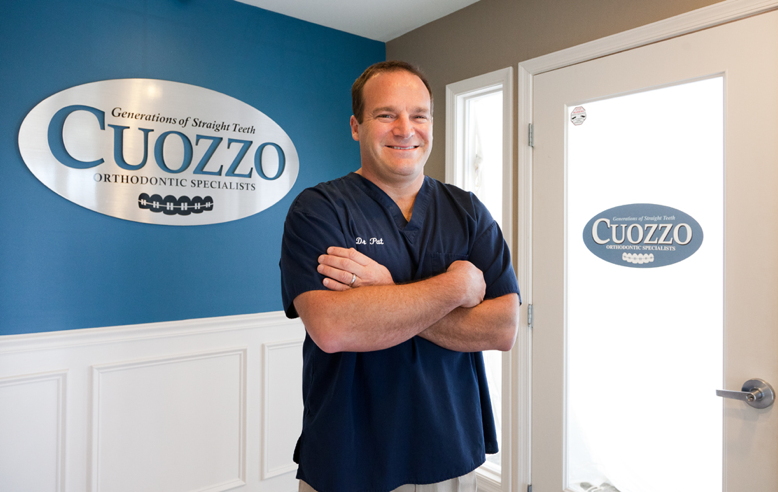Dr. Melissa Pecoraro
Periodontist, Offices in Clark and Warren
Solo practitioner, in practice 11 years
Q. How can patients determine if they or their children are at risk for gum disease?
A. I cannot stress enough the importance of early detection of periodontal disease. Periodontal destruction is irreversible, so arresting the disease process early is crucial to maintaining tooth support. Visiting your general dentist for a thorough examination and X-rays is the first step. However, if you have a family history of periodontal disease, are a diabetic, are immune compromised, use tobacco, feel your teeth are loose, have developed gaps or spaces, or experience gum sensitivity, recession, pain or bleeding, seeing a periodontist for a routine screening would be your best bet.
Dr. Daniel J. Armento
General Dentist, Office in Chester
In practice 20 years; Associate, Dr. Rita Domasica, his wife
Q. How has the dental checkup changed?
A. It has become an important factor when considering a patient’s overall health. A blood pressure reading and a review of the patient’s medical history should be completed at each visit, opening a discussion about the link between oral health and overall health. Oral cancer-screening technology based on tissue fluorescence, used as an adjunct to a head and neck oral cancer screening, is a great advancement. And, of course, the use of digital X-rays has greatly reduced radiation exposure to patients.
Dr. Rosalie P. Nguyen
Pediatric Dentist, Office in Edgewater
In practice 10 years; Associate, Dr. Cindy Chay
Q. What are the best foods to promote dental health among young children? What should be avoided?
A. The best foods to include are fruits, vegetables and dairy. The foods to avoid are gummy vitamins, fruit snacks, dried fruits like raisins and chips—too much snacking, and the carbohydrates turn into sugar. Anything that will stick to your teeth is never good.
Dr. Patrick Cuozzo
Orthodontist, Offices in Lincroft and Sea Girt
Solo practitioner, In practice 18 years
Q. What’s the right age for children to start orthodontic treatment?
A. Patients should be evaluated by age seven. Most patients at that age are not ready for orthodontic treatment, but it is crucial to examine them for possible early intervention. A baseline Panorex X-ray is taken and will be used in the future to monitor the eruption of teeth and jaw growth. The average age to start full, comprehensive orthodontic treatment is 10 to 12 years old.
Dr. Dimple Malavia
Endodontist, Office in Edison
In practice 12 years; Associates, Dr. Shawn Lafkowitz and Dr. Trisha Charland
Q. In view of improved procedures, does root canal deserve its bad reputation?
A. Research has allowed us to understand the disease process better, thus enabling successful anesthesia and good postoperative control using various pain medications and antibiotics. Better visualization using microscopes and endoscopes also has reduced pain. Mechanical rotary files have reduced the time of the procedure and increased accuracy, thus reducing post-operative pain and complications. All this results in a pain-free experience for the patient.





